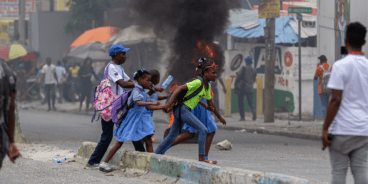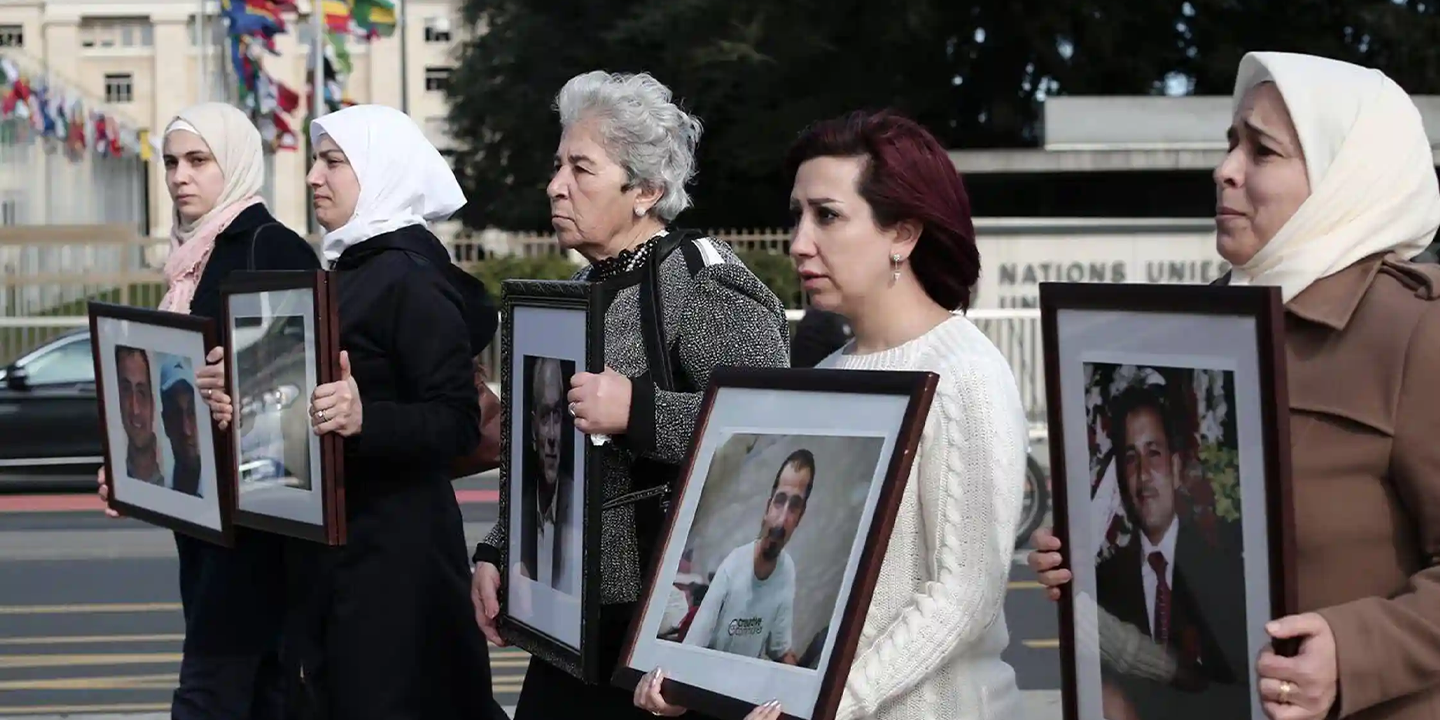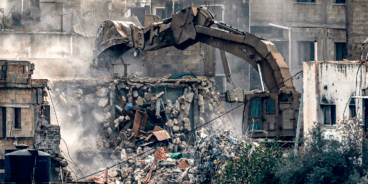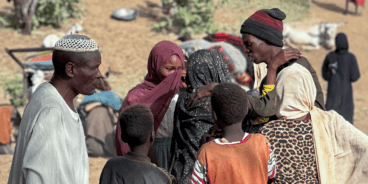

Atrocity Alert No. 353: Syria, India and Israel and the Occupied Palestinian Territory
Atrocity Alert is a weekly publication by the Global Centre for the Responsibility to Protect highlighting situations where populations are at risk of, or are enduring, mass atrocity crimes.
UN TO VOTE ON RESOLUTION TO ESTABLISH AN INSTITUTION ON MISSING PERSONS IN SYRIA
Since 2011 more than 100,000 persons in Syria have gone missing or been forcibly disappeared by all parties to the conflict, including the Syrian government and armed groups, such as the so-called Islamic State of Iraq and the Levant. Millions of Syrians have been searching for their missing loved ones and desperately seeking information on their fate and whereabouts. The UN Commission of Inquiry (CoI) on Syria has reported that the situation of the missing and disappeared represents a national trauma that will affect Syrian society for decades to come.
In February 2021 Syrian victim, survivor and family associations, coordinating under the Truth and Justice Charter, worked together to articulate their collective needs and identified the necessity for a single contact point to assist them in clarifying the fate of those missing and for support to those directly affected. Following intensive advocacy by the Truth and Justice Charter groups, the UN Secretary-General released a report on 30 August 2022, which concluded that the complex gaps and challenges – including the massive scale of missing persons, insufficient coordination and prolonged suffering of the survivors and victims – require a coherent and holistic solution. Notably, the report called on member states to create an international institution to clarify the fate and whereabouts of all missing persons in Syria and to provide adequate support to victims, survivors and the families of those missing. The CoI reached similar conclusions in a policy paper released in June 2022.
On 29 June the UN General Assembly will vote on a draft resolution to establish a dedicated institution to clarify the fate and whereabouts of missing persons in Syria. Such an institution, entirely conceptualized and developed by those directly affected, will uphold the families’ right to truth and its functioning will also include the full and meaningful participation of victims, survivors and the families.
Ahmad Helmi, Co-Founder and Manager of the Ta’afi Initiative, one of the members of the Truth and Justice Charter, said, “In 2015, after three years in prison, one of the wardens told me that I will be released in three days. I was super excited and started thinking about what life was going to look like outside the walls. But that was nothing to compare to my excitement today, because this institution will be the beginning of the route to search for thousands of the disappeared.”
The vote presents a historic opportunity for UN member states to uphold their collective responsibility to protect Syrians. All UN member states must vote in favor of the proposed draft resolution and make every effort to ensure it is well-resourced to carry out its mandate.
INTER-ETHNIC CLASHES ESCALATE THE RISK OF POTENTIAL ATROCITIES IN MANIPUR, INDIA
On 14 June at least nine people were killed in clashes between members of the Kuki and Meitei ethnic groups in Manipur, a state in northeastern India near the Myanmar (Burma) border. Since 3 May an estimated 100 people have been killed in violence between the two communities, hundreds of homes, churches and temples have reportedly been burned and tens of thousands of people displaced. The Indian government has responded by deploying thousands of troops to the region, cutting off internet service and imposing overnight curfews.
The violence was first ignited after the Manipur High Court directed the government to consider including Meiteis, who constitute the ethnic majority in Manipur, on the “Scheduled Tribes list.” The list grants special benefits – such as financial assistance and quotas in government jobs and education – to historically marginalized communities in an effort to confront structural inequality and discrimination. The announcement triggered protests over economic inequality and opportunities, as well as resistance to extending Scheduled Tribe benefits to Meiteis. Violent clashes subsequently broke out between armed elements from both communities, killing more than 50 people in the first three days of fighting alone. Since then, sporadic clashes and arson attacks have continued and hate speech and dangerous rhetoric from public officials and on social media have incited further tensions.
The military has been unable to control the violence and both sides have accused the security forces of bias toward the other group. Distrust in state institutions has been entrenched by the imposition of the Armed Forces (Special Powers) Act, a law adopted in 1958 that has granted the military broad powers in areas that have a history of insurgency, including Manipur, as well as some immunity for abuses perpetrated in associated operations. Kukis have also been wary of attempts at mediation due to the prominent role of individuals from the Meitei community in the Manipur government, as well as among officials intervening from India’s capital. In addition, rising hate speech and targeted violence against non-Hindu populations under Prime Minister Narendra Modi has widened general distrust of the central government in Manipur and other areas of the country.
The situation in Manipur is exacerbated by several factors, including the presence of ethnic armed groups and a history of tensions among the diverse ethnic groups. There are longstanding grievances between Kukis and other minority communities, who predominantly inhabit underdeveloped hill regions, and Meiteis, who live in valley areas of Manipur. In recent years the government has claimed forest land in the hill regions of Manipur, which many perceived as targeting Kukis in forced displacement. In addition, since the military coup in neighboring Myanmar in February 2021, thousands of refugees have fled into Manipur. Those fleeing Myanmar have close ethnic ties to the Kuki population, contributing to growing insecurity amongst the Meitei community.
The risk of protracted violence and possible atrocities in Manipur is high if urgent action is not taken to confront rising tensions. The state government and officials from Delhi must implement a strategy to confront disputes over land rights and access to economic resources and opportunities, including utilizing a neutral party to mediate between Kuki and Meitei representatives. The government must restore internet services to the area and also confront the spread of hate speech on social media so that resentments are not further ignited.
NEAR-DAILY VIOLENCE THREATENS POPULATIONS IN OCCUPIED PALESTINIAN TERRITORY
Recent deadly events in the Occupied Palestinian Territory (OPT) highlight the continual consequences of ongoing violations and abuses in the region for both Palestinians and Israelis. On 19 June Israeli security forces carried out a raid at the Jenin refugee camp in the Occupied West Bank, resulting in seven Palestinians killed, including two children, and over 60 wounded. Two days later two armed Palestinians shot and killed four Israelis in the Occupied West Bank and injured several others. Israeli settlers in Palestinian villages around Nablus and Ramallah subsequently perpetrated acts of vandalism and torching of land and properties, including a school.
UN Secretary-General António Guterres condemned the violence, stating “Israel, as the occupying Power, must ensure that the civilian population is protected against all acts of violence and that perpetrators are held to account. Israel must abide by its obligations under international humanitarian law, including the proportional use of force and the taking of all feasible precautions to spare civilians in the conduct of military operations.”
In recent months, Israeli forces have frequently deployed lethal force regardless of the level of threat. This often follows attacks or incursions by settlers into Palestinian villages and includes search-and-arrest operations and violent confrontations with Palestinians. According to UN figures, 2022 was the deadliest year for Palestinians residing in the Occupied West Bank, including East Jerusalem, since 2005, with over 150 Palestinians, including 26 children, killed by Israeli security forces. This year has been characterized by similar levels of violence, with more than 160 Palestinians killed in the West Bank and Gaza Strip since January.
In addition to the threat of near-daily violence, Israeli authorities have recently altered planning procedures to expedite and expand settlements. Israeli planning authorities are also expected to advance over 4,000 settlement housing units in occupied territory. On 19 June Secretary-General Guterres expressed alarm at these developments, reiterating that settlements are a flagrant violation of international law and emphasized that, “The expansion of these illegal settlements is a significant driver of tensions and violence and deepens humanitarian needs. It further entrenches Israel’s occupation of Palestinian territory…and undermines the legitimate rights of the Palestinian people to self-determination and sovereignty.” The UN Commission of Inquiry (CoI) on the OPT reached similar conclusions in June 2022. The CoI’s recent report issued on 8 June also concludes that the Israeli authorities’ consistent silencing of civil society voices is linked to the goal of ensuring permanent occupation at the expense of the rights of the Palestinian people.
In order to lay the groundwork for a path to sustainable peace in the region, the Israeli government must cease and reverse all settlement activity, as well as halt the institutionalized systematic racial oppression and discrimination against Palestinians which amounts to apartheid. All parties must refrain from the use of violence and ensure accountability for ongoing violations of international law in the region.
Related Content


World Leaders Must Act to End Israel’s Unlawful Presence in the Occupied Palestinian Territory
